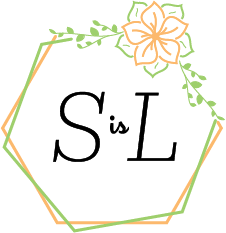
Resources | FAQs
Below you’ll find a list of Frequently Asked Questions and Resources, however if you don’t see what you’re looking for please feel free to reach out to me directly at suchislifedds@gmail.com
FAQs
-
End of Life Doulas, or EOLDs also called Death Doulas or Death Midwives, enrich the dying experience for patients, family members and friends, while strengthening the relationship between medical (the doctors, nurses, social workers) and non-medical support (the family or caretakers). We are trained professionals who provide assistance and guidance with holistic, culturally sensitive services to individuals and their families during transformative life changes.
Doula-client relationships engage the difficult and complex emotions while navigating the signs and symptoms of the dying process. An end-of-life care team is made up of multiple different professionals ranging from doctors, nurses, social workers, and End of Life Doulas to foster a culture of equity in order to facilitate a good death. We strive to be a support system for those who are terminally ill, elderly, or healthy and their families as they plan for their transition. A death doula’s work ranges from logistical planning for the time before, during and after of death; conducting rituals or comforting practices; helping the dying person reflect on their life and values; and explaining the bodily functions of dying to caregivers. End of Life Doulas seek to eliminate the silence around death-related topics, decrease anxiety surrounding death, and dismantle the foundation of inequality, racism, and social marginalization at end of life.
-
Although there is no federally mandated certification to become an End-of-Life Doula, there are many private organizations that offer education or certification programs.
Consumers and deathcare-related businesses can find an end-of-life doula at the National End of Life Alliance website. Because the industry is currently unregulated, it is recommended that people interview an End-of-Life Doula before hiring them, just as they likely would a Birth Doula.
-
Death doulas are NOT competitors with funeral service but rather complement the death care industry by providing additional support and community resources for deceased and their families. There are laws governing what death doulas can and cannot do just as with traditional death care. Funeral directors interact with families post death while end of life doulas are present with families before, during, and after death occurs.
In my own work with funeral homes, I have provided respite care to the families immediately after the death and provide periodic follow ups and aftercare. It’s the customer service that keeps families coming back. As we all know, people will not remember what you said but they will remember how you made them feel.
The difference between hospice and death doulas is that death doulas do not provide medical care. Instead, death doulas work in conjunction with hospice programs to provide interpersonal, social, logistical, and spiritual guidance that complements the care they receive in hospice.
Hospice care is regulated by Medicare rules, limiting the time staff is allowed to spend with patients and families. The National Hospice and Palliative Care Organization (NHPCO) has just put together an End-of-Life Doula Council to share with hospices and families the ways in which Professional End of Life Doulas can assist their work. NHPCO is encouraging hospices to hire doulas to complete the hospice team by filling in “the gaps in care” and allowing for the best end of life experience.
Death doulas also step into other areas where hospice and funeral homes may need help, such as:
Advance Health Care Planning
Practical Training for Family Caregivers
Creating a Plan for Support at the Patient’s Time of Death
Help with Planning Funeral and Memorial Services
Companionship to Patients
Needed Relief for Family Caregivers
Grief Support
Vigil presence for Actively Dying Patients
-
Death Doulas are here to serve humanity. We serve anyone ranging from young, elderly, terminally ill, healthy, caretakers and even pets. End of life doulas complement the care from hospitals, hospices, and funeral homes by filling in the gaps that occur during the dying process.
Every doula is different. Some assist only the healthy, some assist only the dying. This is why it is best to interview doula to see what their specialty is. Doulas may also be celebrants, hospice staff, or even massage therapists. Keep in mind each doula has their own specialty. Some may prefer to work only with advance directives while others may prefer legacy
-
End of Life Doulas are not simply a trend or a fad. Roughly 10,000 people turn 65 each day in the US, so more and more elderly people—as well as those with life-limiting illness—will need our services. Families are bringing new values, preferences, and opinions that are changing the world of funeral service. They are thinking differently about how they want to honor their loved ones and have new perceptions of the funeral service profession.
Death Doulas help bridge the gap between families and end of life care. Having a death doula is helpful when a family has little experience with death or when they are afraid of confronting death. The death doula can act as a liaison between the family and the medical professionals, Hospice and funeral home, helping to educate families about the options available to them and easing what can often be a difficult or painful arrangement process.
We offer a variety of services that include helping a person write their own obituary; assisting with legal paperwork, including advance directives, health care proxies, and wills; creating a peaceful, loving atmosphere at death; and, most importantly, providing grief care before, during, and after death of a loved one. Death doulas can help families reduce confusion. Doulas also educate people to know that they have choices.
Resources
-
Listen to the Key Nutrition Podcast
Mason Sawyer talks about his journey of overcoming loss and rebuilding his life after the tragic loss of his family.
-
Watch Video: We don't "move on" from grief. We move forward with it
Nora McInerny shares about life and death while encouraging us to shift our viewpoint.
“A grieving person is going to laugh again and smile again,” says Nora. “They’re going to move forward. But that doesn’t mean that they’ve moved on.”
-
Watch: Why thinking about death helps you live a better life
As a death doula, or someone who supports dying people and their loved ones, Alua Arthur spends a lot of time thinking about the end of life. In a profound talk that examines our brief, perfectly human time on this planet, she asks us to look at our livs through the lens of our deaths in seeking to answer the question:
“What must I do to be at peace with myself so that I may live presently and die gracefully?”
-
Watch Video: I See Dead People | Dreams and Visions of the Dying
Dr. Christopher W. Kerr is the Chief Medical Officer at The Center for Hospice and Palliative Care, where he has worked since 1999. His background in research has evolved from bench science towards the human experience of illness as witnessed from the bedside, specifically patients’ dreams and visions at the end of life. Although medically ignored, these near universal experiences often provide comfort and meaning as well as insight into the life led and the death anticipated.
-
Watch: BJ Miller - What really matters at the end of life
At the end of our lives, what do we most wish for? For many, it's simply comfort, respect, love. BJ Miller is a hospice and palliative medicine physician who thinks deeply about how to create a dignified, graceful end of life for his patients. Take the time to savor this moving talk, which asks big questions about how we think on death and honor life.
-
Read the Article: What People Think About Before They Die
As a hospice chaplain, Kerry Egan didn't offer sermons or prayers unless they were requested; in fact, she found, the dying rarely want to talk about God, at least not overtly. Instead she discovered she'd been granted an invaluable chance to witness firsthand what she calls the "spiritual work of dying" - the work of finding or making meaning of one's life, the experiences it's contained, and the people who have touched it, the betrayals, wounds, unfinished business, and unrealized dreams. Instead of talking she mainly listened: to stories of hope and regret, shame and pride, mystery and revelation and secrets held too long. Most of all, though, she listened as her patients talked about love - love for their children and partners and friends; love they didn't know how to offer; love they gave unconditionally; love they learned, sometimes belatedly, to grant themselves.
-
Listen to All There Is with Anderson Cooper
The ‘All There Is with Anderson Cooper’ Podcast is about the people we lose, the people left behind, and how we can live on – with loss and with love.
-
Visit the Website: The Conversation Project
The Conversation Project is an initiative of the Institute for Healthcare Improvement, a not-for-profit organization that is a leader in health and health care improvement worldwide.
-
Visit the Website: The Good Death Society Blog
This blog, run by a variety of authors, explores right-to-die issues, from legislation to advance directives to other countries’ approach to the right to die and anything else deemed relevant to end-of-life freedom.
-
Visit the Website: Conscious Dying Institute
Their mission is to create a wisdom-based caring healing culture of End-of-Life Doulas, Conscious Dying Coaches and Educators of all faiths, beliefs, ethnicities who restore death to its sacred place in the beauty, mystery and celebration of life and contribute to the evolution of human consciousness.
-
Visit The Website: My Wind Phone
Originally created by Itaru Sasaki, a ‘Wind Phone’ is an unconnected phone booth and phone where visitors can grieve and hold one-way conversations with deceased loved ones.
-
PAUSE is dedicated to supporting people of color through grief and end of life with safe, culturally-sensitive, and expert-informed resources.
Regardless of our race, gender, religion, location, and privilege - dying is not an option. But how we access safe, culturally-sensitive support and care is. - PAUSE
